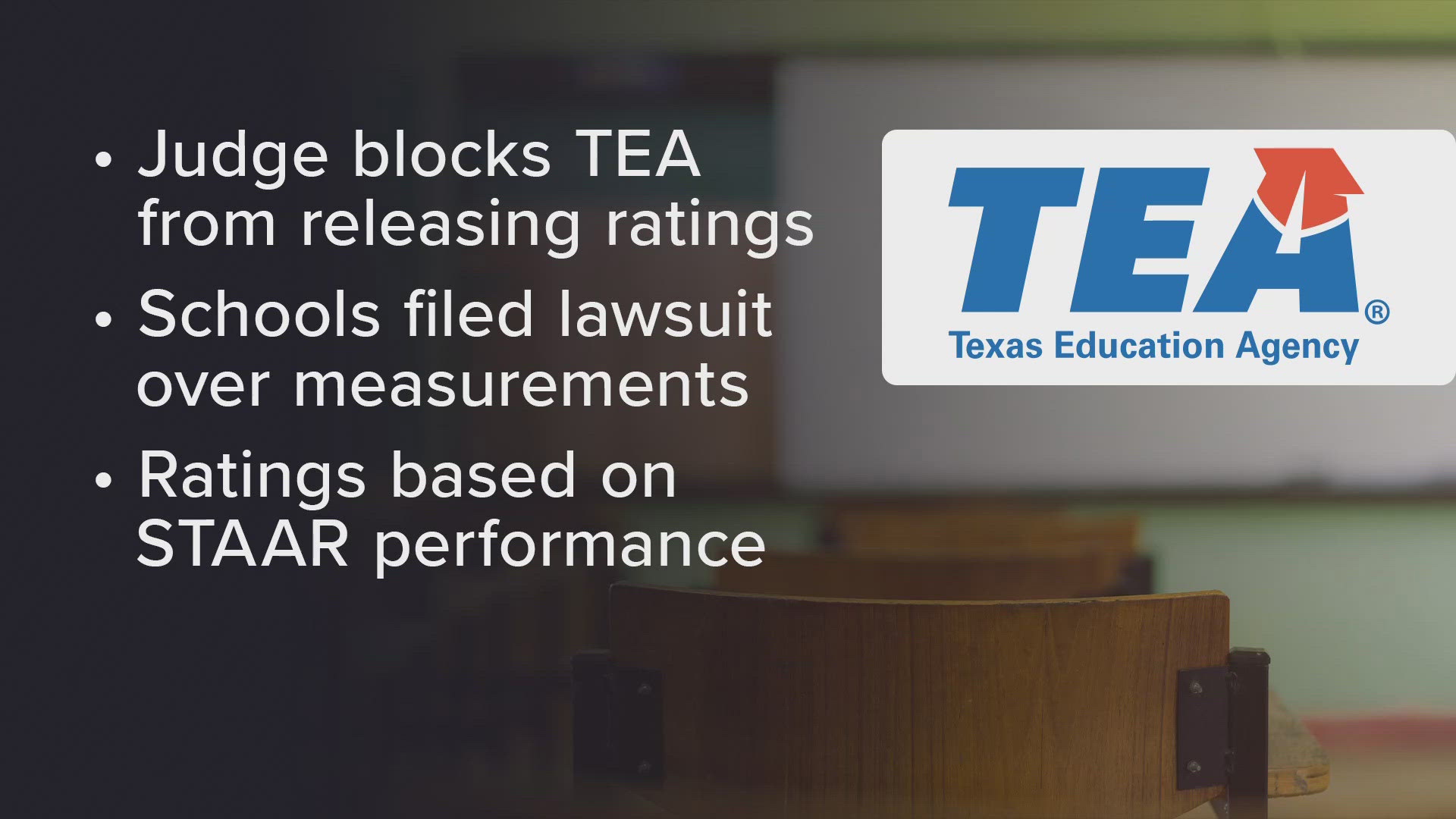TEXAS, USA — Editors Note: This article was originally published in The Texas Tribune. You can read the original article here.
A Travis County judge has blocked the Texas Education Agency from releasing its ratings of the state’s school districts and campuses for a second year in a row.
Judge Karin Crump on Monday issued a temporary restraining order after Texas school districts filed their second lawsuit over changes to the metrics that are used to measure their performance. Here’s what you need to know:
The background: How to grade Texas school districts for their performance has been a contention point after the TEA changed up the metrics last year.
The state announced in 2023 that schools would need to meet stricter benchmarks to get a good rating. The TEA’s accountability rating system ranks schools and districts on an A-F scale. High schools can now only get an A if 88% of their seniors enrolled in college, pursued a non-college career or entered the military. That benchmark used to be 60%.
The state says stricter benchmarks will mean schools will be required to better prepare students for life after high school. And while Texas school districts agree on the importance of improving college and career readiness, they argue that the state wants to move the needle too fast.
The state also redesigned the STAAR test, an annual statewide standardized test that measures students’ understanding of state-mandated core curriculum and is a key metric in calculating schools’ A-F ratings.
What is the A-F accountability system? Each school district and school is graded on an A-F scale every year based on their students’ standardized test scores and academic growth. The TEA also looks at their progress on closing racial and socioeconomic achievement gaps.
Parents rely on the rating system to see how successful school districts are in preparing their children and to decide where to enroll their kids.
For schools, a bad grade could bring big consequences. If a failing score leads to families leaving the district, that means less money for the school since state funding is tied to student attendance. Consecutive years with a failing grade could trigger a state takeover, like the one at Houston ISD.
What has happened in the courts so far: The lawsuit filed Monday is the second legal battle over the A-F rating system.
Last fall, a Travis County judge temporarily blocked the release of the 2023-24 ratings. The judge sided with more than 120 school districts who had filed a lawsuit contending the stricter standards would bring unfair drops to their ratings. The judge still has to make a final ruling but has said she will likely side with school districts. The TEA has already said it plans to appeal the judge’s decision.
Families have had five years without a complete set of school ratings. Texas schools and districts did not get ratings in 2020 or 2021 because of the COVID-19 pandemic. And in 2022, struggling schools set to get a D or an F got extra relief: Senate Bill 1365 directed TEA to forgo official ratings for those schools to give them time to respond to the effects of the COVID-19 pandemic.

